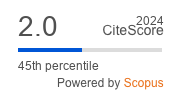From Abstract to Artifact: Using LEGO® SERIOUS PLAY® as an Experimental Methodology in Design Science Research
DOI:
https://doi.org/10.23726/cij.2025.1746Keywords:
Design scienceReferences
Boland, R. J., & Collopy, F. (2004). Design matters for management. In R. J. Boland & F. Collopy (Eds.), Managing as designing (pp. 3–18). Stanford University Press.
Benesova, N. (2023). LEGO® Serious Play® in management education. Cogent Education, 10(2), 2262284.
Cripps, P. (1 January 2021). Three types of problem, and how to solve them. Software architecture Zen. Retrieved on August 15th, 2025 from https://softwarearchitecturezen.blog/2021/01/01/three-types-of-problem-and-how-to-solve-them/
Jintapitak, M., & Yodmongkol, P. (2025). The Enhancing System Thinking and Teamwork Through LEGO® SERIOUS PLAY®: a Case Study in Knowledge and Innovation Management. Asian Health, Science and Technology Reports, 33(1), 3476-3476.
Knapp, D., Seckler, C., & vom Brocke, J. (2023). Creativity in design science research: How to use divergent and convergent methods effectively [Research in Progress Paper]. 18th International conference on design science research in information systems and technology (DESRIST 2023), May 31–June 2, Pretoria, ZA.
Kruse, L. C. (2025). Design Principles Unveiled: Capturing Innovation Insights for Future Design Breakthroughs. CERN IdeaSquare Journal of Experimental Innovation, 9(1), 5-8.
Lubart, T. (2016). Creativity and convergent thinking: Reflections, connections and practical considerations. Вестник Российского университета дружбы народов. Серия: Психология и педагогика (Herald of the Russian University of Friendship of Peoples. Series: Psychology and Pedagogy), 4, 7–15.
Opdenakker, R., & Cuijpers, C. (2025). Design Science Methodology for the Management Sciences. Springer Texts in Business and Economics.
Romme, A. G. L. (2023). Design science as experimental methodology in innovation and entrepreneurship research: A primer. CERN IdeaSquare Journal of Experimental Innovation, 7(2), 4-7.
Warburton, T. (2025). The Use of LEGO® Serious Play to Facilitate Professional Identity Formation. PhD thesis University of Lancashire.
Downloads
Published
How to Cite
License
Copyright (c) 2025 Raymond Opdenakker, Carin Cuijpers

This work is licensed under a Creative Commons Attribution 4.0 International License.
Authors who publish with this journal agree to the following terms:
- Authors retain copyright and grant the journal right of first publication with the work simultaneously licensed under a Creative Commons Attribution License that allows others to share the work with an acknowledgement of the work's authorship and initial publication in this journal.
- Authors are able to enter into separate, additional contractual arrangements for the non-exclusive distribution of the journal's published version of the work (e.g., post it to an institutional repository or publish it in a book), with an acknowledgement of its initial publication in this journal.
- Authors are permitted and encouraged to post their work online (e.g., in institutional repositories or on their website) prior to and during the submission process, as it can lead to productive exchanges, as well as earlier and greater citation of published work (See The Effect of Open Access).


